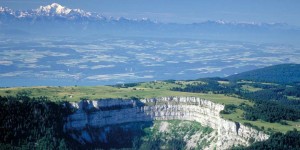The last gathering of Triglav Circle Europe was held 14-15 June 2014 in the Echo Hotel L’Aubier in Neuchatel Switzerland. The proposed topic is the roll of nature in the international politics of the environment. The following is a descriptive note on the topic for discussion.
The Role of “Nature” in the Politics of the Environment
There are many questions to be addressed relative to this topic for the next meeting of the Triglav Circle Europe. The following write up sets a possible stage for the discussion.
Since the 1960’s, the environment has been a pressing subject of public concern and national and international action. Stirred by numerous published accounts of diminishing resources, ubiquitous pollution, and over exploitation of wildlife and wild places, participants in many private and public organizations and civil society have explored options for dealing with these problems. Some initiatives have crystallized into international norms and conventions—some of which are better observed than others. Some remain the object of lively international discussion. All are based on explicit or implicit assumptions.
One such assumption is that the word ‘environment’ is preferable to the word ‘nature’ in the discourse concerning the health of the planet and the role of human beings in sustaining it. The World Charter for Nature was adopted in 1982 and largely forgotten thereafter. There has been little universal political attention to ‘nature’ as a subject, aside from a recent attempt by a few countries, members of the United Nations, to draw attention to the need for sustainable development in Harmony with Nature.
Why so? For most people there are obvious answers: ‘environment’ is a synonym for nature, and much easier to deal with than ‘nature’ alone—presently bearing inconvenient political connotations. For others ‘nature’ is considered an outworn and obsolete term, a relic of romanticism; the ‘environment’ de facto refers to humankind’s relationship to nature, and thus is the more appropriate concept given the scientific spirit of the time
Whether we employ ‘environment’ or ‘nature’ is not just a matter of semantics. In fact this word choice may have strong philosophical implications and serious political connotations. These ideas suggest fundamental questions linked to the planetary crisis. For example:
Is the current environmental movement the best pathway to human life in harmony with nature?
What do we mean by ‘environment’ and what do we imply by the term ‘nature’? Does the word ‘environment’ imply ‘the relationship between humankind and nature’ in political and economic circles as some scholars suggest?
What is the political significance and what might be the consequences of this perplexing shift in terminology since the 1960’s?
Has significant knowledge been excluded from the political discourse by generally retreating from the use of the term ‘nature’ in favor of ‘environment’ and its specialized derivatives ‘ecosystems,’ ‘biosphere,’ and ‘biodiversity’? And if so:
How would reintroducing ‘nature’ as a crucial consideration in international politics change the outcome for the integrity of life on the planet?
In other words, if political consideration would be given to both ‘nature’ of which human beings are an integral part and the ‘environment,’ as humankind’s relationship to nature’s resources, would this combined and balanced consideration introduce additional sources of knowledge, ideas, and inspirations thereby enlarging the spectrum of policy options?
These are some questions to be addressed at the next meeting of Triglav Circle Europe to be held 14-15 June 2014 in the EcoHotel L’Aubier, [Les Murailles 5, 2037 Montézillon: Neuchatel Switzerland].

